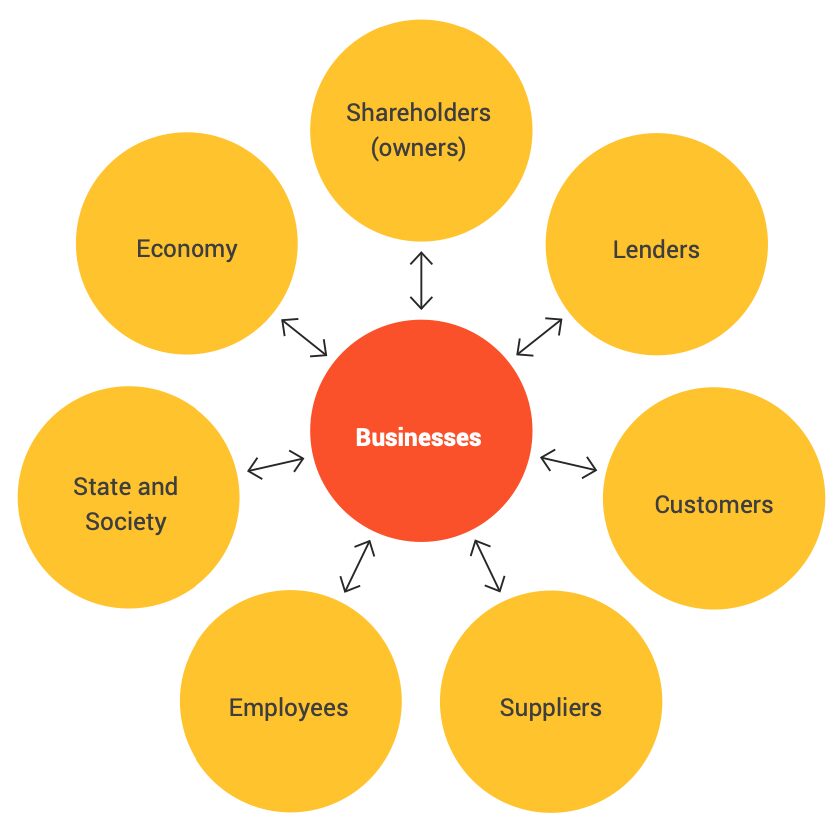(This article originally appeared in Global Focus, EFMD’s Business Magazine, and has been republished on this website with the permission of EFMD.)
I’ve been hoping that those in positions of power and influence would have realised that capitalism, as currently operating, needs reform, and that they would be doing all in their power to bring about that change. Maybe those in power are comfortable and benefit from where we are. There are others, myself included, who believe that we need a capitalism that keeps all the elements of the ‘Lived Experience’ in balance and harmony.
The capitalism of today – shareholder capitalism – stems from Milton Friedman’s seminal work of 1970. Friedman said that the purpose of business is “generally to make as much money as possible while conforming to the basic rules of society”. That’s what companies did and are doing – and we’ve all shared in that value. Living standards have risen enormously, we live healthier, longer lives, millions worldwide have been taken out of poverty, and innovation through competition has provided huge advances and far greater choice. Capitalism has done a great job – and if you’re not convinced, look at East vs. West Germany or North vs. South Korea.
The times, they are changing
I’ve been – and remain – an ardent capitalist ever since I started full-time work – which was eight years before Friedman’s work was published, and my last formal economic training was in 1966 when I was awarded an HNC (Higher National Certificate) in Business Studies (with Distinction!). At that time, the majority of companies took their wider responsibilities very seriously. But over time, capitalism, I think you’ve lost your way, and the abuse of the power you have demonstrated requires a significant shift for the good of society.
Times have changed hugely since 1970. Consider another quote from Friedman’s letter to the New York Times, ‘that businessmen who believe that business has a social conscience and takes seriously its responsibilities for providing employment, eliminating discrimination, avoiding pollution and whatever else may be the catchwords of the contemporary crop of reformers. In fact, they are–or would be if they or anyone else took them seriously–preaching pure and unadulterated socialism’. Wow! How well would that go down today? That’s not what I see as socialism. To me, it shows that what Friedman wrote was maybe appropriate for then, but society has moved on and is wildly inappropriate now.
Sadly, capitalism, you’ve abused the power that you’ve been given. The pendulum has swung too far in your favour and you’ve forgotten that we are all humans, deserving of respect.
Money, money, money
I can list the abuses. They start with the fact that an ever-increasing share of GDP is going to shareholders and a decreasing share of GDP is going to labour. And within that shift is hidden the fact that the earnings of CEOs and C-suite members have been increasing at huge rates, while the earnings of the rest stand still. So, the rewards are being shared unevenly and this has an impact throughout society on such issues as social mobility, as wage earners find it harder to improve themselves.
The encouragement and indeed focus on short-term earnings growth at the expense of long-term prosperity is another concern. There is plenty of evidence to show that companies that take a long-term view outperform on earnings, revenue, investment, and job growth. Add to this the level of share buy-backs, which increase returns only to shareholders and take money that should be invested back in the business for long term health in many cases.
Then, there is the darker side of the abuses. Company scandals: where companies have cheated to drive returns for shareholders (and for senior executives, of course, holding share options). They have shown disdain for the rule of law, their customers and society – VW with its emissions scandal, Apple tampering with battery life, Kobe Steel covering up quality issues, Facebook’s data used by Cambridge Analytica for political purposes, the US opioids scandal, Wirecard, Theranos, etc. These are not insignificant businesses that wouldn’t attract attention if caught, but huge corporations, driven by greed and delusions of grandeur. I’m sure they all have/had a nice statement on ethics in their companies. Or, still, on the dark side, we see the explosive ‘Panama Papers’, which exposed money laundering and the extent to which corporations and individuals would go to avoid paying their taxes, or at least to the jurisdiction where it was earned. Perhaps in some case, it could have been legal – but ethical, no.
No wonder trust levels in business are low – in the well-reputed global Edelman Trust barometer for 2022, 63% of people believed that business leaders were purposely misleading people.
The lack of restraints on shareholder capitalism has allowed corruption and mistreatment to take place. Governments, sadly, are often not willing to even tap the back of the hand that feeds them for fear of reprisal. This unrestrained power has allowed the master-slave mentality to survive, where need over want keeps employees working in companies. The impact of digital overload and 24/7 accessibility has increased levels of stress and mental health problems to epidemic proportions.

Search for the hero
So, you’ve been weighed in the balance and found wanting. What’s needed is a capitalism that provides fairly for all – nowadays described as Stakeholder Capitalism, where the interdependence of a business and its stakeholders are recognised and treated equally.
I’ve shown a simple model used by the World Economic Forum which is a major proponent of the model. This model shows the two-way responsibilities that a business has with all its stakeholders. Other institutions and companies (including Xynteo, Imagine.one, Conscious Capitalism, etc.) are also firmly behind this approach, alongside the UN, through their focus on the Sustainable Development Goals, the American Round Table and their redefinition of the ‘Purpose of the Corporation’ and the wonderful ‘B Corps’ organisation, whom I ardently recommend both for the companies who have joined and the resources they make freely available to any company thinking of embarking on the journey. Please check them out and read about the great work that all certified B Corps are doing to ‘make every business a force for good’ – what a wonderful mantra!
Providing huge additional weight to this requirement for change are two situations: the ever-increasing realisation of the urgency behind climate change and the Covid pandemic.
As the enormity of the climate change challenge has become more apparent, so has the role that businesses need to play in halting it. Investment managers understand the desire for investments that reward investors, while also ensuring that companies have goals designed to act responsibly in reducing their impact. So, investment in Environmental, Social and Governance, (ESG) has been phenomenal as investors seek moral and ethical investments that deliver returns.
The focus of ESG isn’t merely on the Environment. The Social aspect looks at how well employees are treated, gender, inclusion, levels of engagement, and customer service. These are all aspects of a business that will predict how well it will perform in the long run and these issues are particularly relevant to sub-40-year-old investors. Governance looks at the ethical practices of the company, the calibre of management decision making, and executive compensation – all information that can give an investor confidence, or not, in the company’s prospects.
And why wouldn’t you – if over the long term, you can demonstrate better returns – invest in morally and ethically run businesses? Plus, when you are looking for a new job, the first port of call should be a company’s record on its ESG targets.
COVID has been an event unknown in our lifetimes and its impact on people has been immense. People are realising their own fragility and questioning: What is my life about? Am I satisfied with the way I’m being forced to live my life? Does my life have meaning? It’s certainly fuelling ‘the great resignation’ as it’s become known. (Of course, there is currently a third disruption taking place, the tragedy of the invasion of Ukraine – what long-term impact this will have is unknown at the time of writing, but the human misery it has and will produce will undoubtedly have major impacts on those who live in free societies).
He ain’t heavy, he’s my brother
Now for the tough part. It isn’t easy. Let’s be very clear, it is not about sacrificing profitability over employees or over the environment – we have to consider all of these – so the leadership team must consider the often-competing demands of the various stakeholders. Decisions need to be taken for the long-term health of the business, not quarterly results. There is a wonderful quote from Sister Irene Kraus, ‘no margin, no mission’ – you can only make things better for your stakeholders if you are profitable. Communication is paramount, you have to explain why have you taken this approach, this decision if you are to ensure support when it is needed. You must be able to demonstrate that the decisions you take are for the long-term health of all stakeholders.
At least you have the most amazing body of support available to you: your employees. As people search for meaning and purpose in their lives now, working for a company that not only has positive ESG targets, but also involves employees both in developing the targets, the metrics behind them and working on progressing them, is well on the way to being successful.
Capitalism needs to be a force for good – to repair its damaged reputation and focus on providing prosperity for all its stakeholders, current and future generations. What a wonderful time to be a leader!
This is an adapted version of an article that was published on EFMD’s website, written by Richard Savage; Director at the FutureWork Forum.



